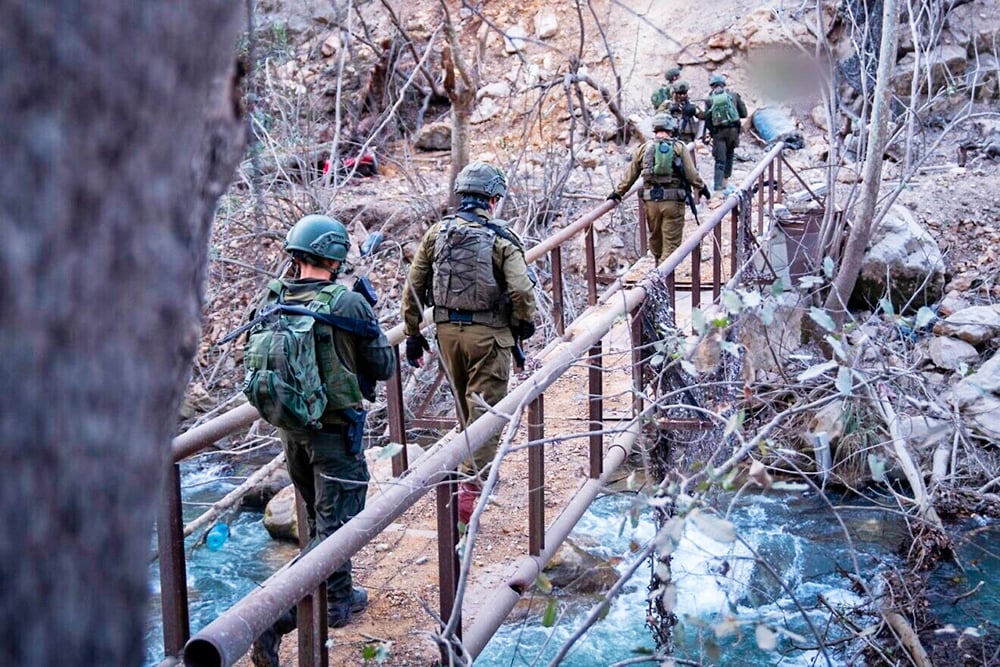Ceasefire went into effect at 4 a.m. Wednesday, local time.

A ceasefire between Israel and Hezbollah was announced on Tuesday and went into effect early Wednesday morning. (Credit: IDF.)
The Israeli Security Cabinet voted on Tuesday, Nov. 26 to approve a 60-day truce with the Hezbollah terror organization in Lebanon, CNN reported.
An unnamed Israeli official informed the channel that the Security Cabinet, which is responsible for defense-related decisions and composed of senior ministers, voted in favor of the agreement.
All Israel Defense Forces soldiers are expected to withdraw from Southern Lebanon over a 60-day “transition period,” while the country’s official Lebanese Armed Forces is deployed to the border region, per the reported terms of an earlier draft agreement.
Iranian-backed Hezbollah has promised to relocate its “heavy weapons” north of the Litani River, located some 18 miles north of the border with Israel.
The deal reportedly includes an oversight committee, which the United States will lead, to monitor implementation and address violations.
Israel has pledged to limit its actions against Hezbollah violations to situations where the Lebanese army fails to neutralize the threat, and it will only do so after consulting with Washington.
The ceasefire went into effect at 4 a.m. local time on Wednesday, per NBN, which is part of the Hezbollah-aligned Amal movement.
An unnamed Israeli official told Axios that the truce was set to take effect on Wednesday morning, after U.S. President Joe Biden announced it on Tuesday night.
As the Israeli Security Cabinet met to approve the deal on Tuesday evening, air-raid sirens were activated across the Galilee and Haifa regions, warning of more rocket and missile fire from Lebanon.
The IDF issued evacuation orders for structures in the Lebanese cities of Tyre and Sidon, announcing that the Israeli military would “soon act against Hezbollah infrastructure located in the area.”
Hassan Fadlallah, a Lebanese lawmaker representing Hezbollah’s March 8 Alliance, told Reuters on Tuesday that the terrorist organization would “remain active” after the war ends, including to help rebuild areas destroyed by Israeli airstrikes.
Israeli Finance Minister Bezalel Smotrich, a senior member of the Security Cabinet, informed Netanyahu of his four demands for supporting the agreement, Israel’s Channel 12 News reported.
The Religious Zionism leader reportedly pressed the premier to call a Cabinet vote on every withdrawal from Lebanon, respond to Lebanese violations of the deal within 48 hours, hold the government in Beirut responsible for any attack from Lebanese territory and ban rebuilding destroyed infrastructure in Southern Lebanon.
Hezbollah has attacked the Jewish state nearly daily for more than a year, firing thousands of rockets, missiles and drones across the border.
More than 60,000 residents of Israel’s north remain internally displaced due to the ongoing cross-border attacks from Lebanon. The attacks have killed at least 76 people in Israel, including 31 IDF soldiers and six foreign nationals. More than 700 have been wounded.
Approval of the ceasefire deal was considered to be a fait accompli, due in part to pressure on Israel by the Biden administration, including threats to withhold American veto power at the United Nations Security Council.
IDF Will Respond Strongly To Hezbollah Violations, Netanyahu Says
The IDF will respond “forcefully” to all violations of the ceasefire deal with Iranian-backed Hezbollah in Lebanon, Israeli Prime Minister Benjamin Netanyahu vowed on Tuesday evening.
Addressing the nation of Israel and his “friends” in northern border towns, Netanyahu said he was “completely committed to your safety and security, the rebuilding of your communities and your future.
“We have attacked the head of the snake in Iran, destroyed its ability to fire missiles and a significant component of its nuclear program,” he said in the primetime address. “The removal of that threat is the most important mission and task to ensure the future of the state of Israel.”
Netanyahu said he decided to bring the ceasefire deal to a vote in the Cabinet for three reasons: to focus on the Iranian threat, to refresh and resupply IDF forces and to isolate Hamas in Gaza and advance the release of the 101 hostages that remain in the Strip.
US Embassy Extends Do-Not-Travel Advisory in Israel to 30 Miles From Lebanese, Syrian Borders
The U.S. Embassy in Jerusalem announced that it is extending the zone in which Americans should not travel in Israel from 2.5 miles from the Syrian and Lebanese borders to 31.1 miles (50 kilometers), according to a Nov. 25 post on the embassy site.
The embassy “strongly recommends” that Americans avoid traveling near the two borders due to “ongoing armed conflict between Hezbollah and Israel, cross-border rocket, missile and UAV strikes,” or drones, which it says “have increased and continue to impact this area daily and have resulted in civilian injuries and deaths.”
The embassy continues to warn against travel in Israel, as well as Yehuda and Shomron, and advises not to travel to Gaza.











